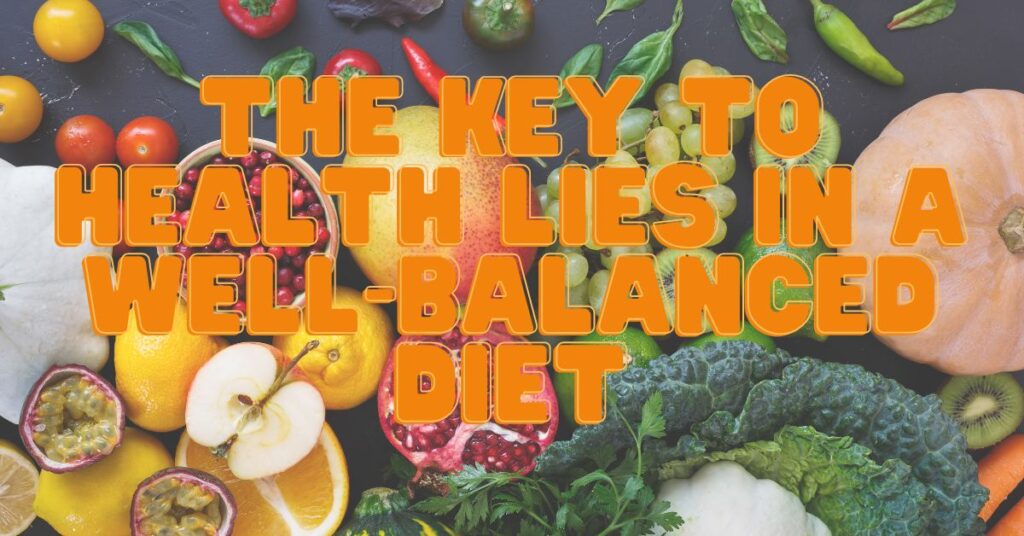In the pursuit of a healthy lifestyle, it’s easy to get caught up in the latest diet trends and fads. But one aspect of our health that deserves more attention is our gut health. The gut, often referred to as our “second brain,” plays a crucial role in our overall well-being. To ensure a healthy gut, one of the most effective strategies is to maintain a well-balanced diet.
In this blog post, we’ll explore the importance of gut health and how eating a balanced diet can help you achieve optimal gut health.
The Gut: A Remarkable Ecosystem
Our gut is not just a place for digestion; it’s a complex ecosystem teeming with trillions of microorganisms, including bacteria, viruses, and fungi. These microorganisms, collectively known as the gut microbiota, have a profound impact on our health. They influence digestion, nutrient absorption, immune function, and even our mental health.
When the balance of these microorganisms is disrupted, it can lead to a variety of health problems, including digestive disorders, autoimmune diseases, and even mental health issues like anxiety and depression. That’s why maintaining a harmonious gut environment is essential for our overall well-being.
The Role of Diet in Gut Health
Your diet is one of the most significant factors influencing the composition and health of your gut microbiota. What you eat directly affects the types and quantities of microorganisms in your gut. Here’s how a well-balanced diet supports gut health:
Fiber-Rich Foods: Fiber acts as food for beneficial gut bacteria. Foods like fruits, vegetables, whole grains, and legumes are excellent sources of fiber. Consuming these foods can promote the growth of beneficial bacteria, leading to a more diverse and healthy gut microbiota.
Probiotics: Probiotics are live microorganisms that provide health benefits when consumed. Yogurt, kefir, sauerkraut, kimchi, and other fermented foods contain probiotics that can help maintain a balanced gut microbiota.
Prebiotics: Prebiotics are non-digestible fibers that nourish and support the growth of beneficial bacteria in the gut. Foods like garlic, onions, asparagus, and bananas are rich in prebiotics.
Variety Is Key: Eating a wide variety of foods ensures that your gut is exposed to different types of nutrients, promoting a diverse microbiota. A diverse gut microbiota is associated with better health outcomes.
Avoid Excessive Sugar and Processed Foods: Diets high in sugar and processed foods can negatively impact gut health. These foods can promote the growth of harmful bacteria and contribute to inflammation in the gut.
Stay Hydrated: Drinking plenty of water is essential for proper digestion and maintaining gut health. Water helps transport nutrients to the cells lining the digestive tract and supports overall digestive function.
Balancing Act: Tips for a Gut-Friendly Diet
Now that we understand the importance of a well-balanced diet for gut health, let’s explore some practical tips to incorporate into your daily eating habits:
- Prioritize whole, unprocessed foods.
- Eat a variety of fruits and vegetables in different colors.
- Include lean sources of protein like poultry, fish, and plant-based options.
- Opt for whole grains like quinoa, brown rice, and oats.
- Consume fermented foods regularly for probiotics.
- Minimize the intake of sugary beverages and snacks.
- Stay hydrated by drinking enough water throughout the day.
- Avoid overuse of antibiotics unless prescribed by a healthcare professional, as they can disrupt the gut microbiota.
Your gut health is a cornerstone of your overall well-being. By nourishing your gut with a well-balanced diet rich in fiber, probiotics, and prebiotics, you can create an environment that fosters the growth of beneficial microorganisms. A healthy gut microbiota is associated with improved digestion, enhanced immune function, and even better mental health. So, remember, when it comes to your health, it all begins in the gut.

